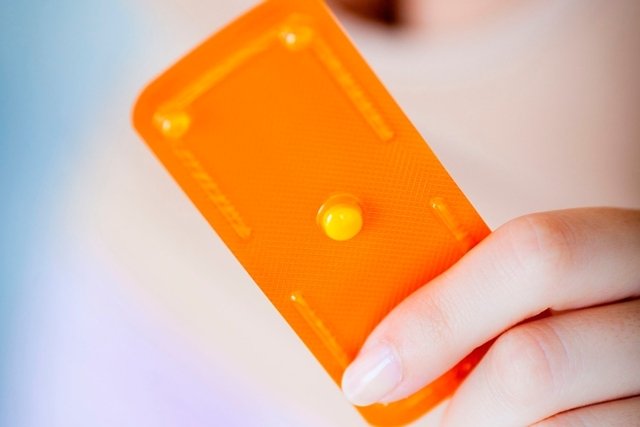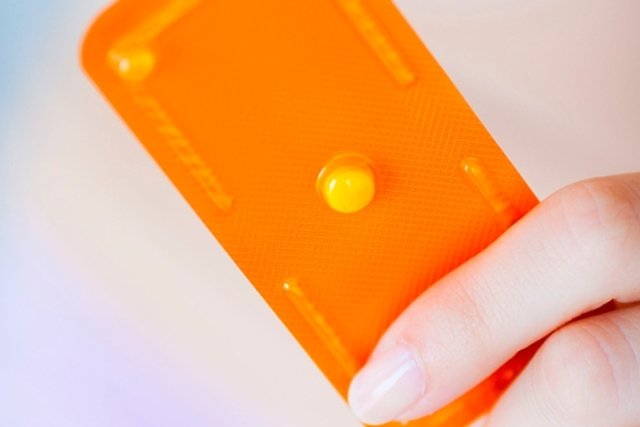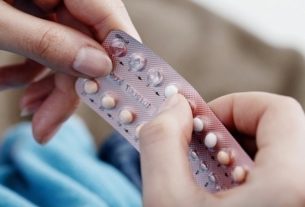The morning-after pill can cause some side effects, such as delayed menstruation, abdominal pain, excessive tiredness, breast tenderness or dizziness, and these generally last a few days and vary from woman to woman.
Side effects can occur both with the single-dose levonorgestrel pill, with one 1.5 mg tablet, or with the divided dose, with two 0.75 mg tablets, or with the emergency pill containing ulipristal acetate.
The morning-after pill is used to prevent unwanted pregnancy and is considered an emergency contraceptive, and should not be taken as a daily contraceptive. See how to take and how the morning-after pill works.

Main side effects
The main side effects that the emergency contraceptive pill can cause are:
- Nausea and vomiting;
- Bleeding outside the menstrual period;
- Pain in the belly or lower abdomen;
- Excessive tiredness;
- Headache;
- Breast sensitivity;
- Diarrhea;
- Dizziness or vertigo;
- Irregular menstruation, which can advance or delay bleeding.
Furthermore, although they are rarer, other side effects may appear such as hives, itching, facial swelling, pelvic pain, painful menstruation or the formation of small blisters on the skin.
What to do
Some side effects can be treated, or even avoided, as follows:
1. Nausea and vomiting
It is recommended to eat soon after taking the pill to reduce nausea. If nausea appears, you can take a home remedy, such as ginger tea or clove tea with cinnamon, or use antiemetic medications. See which pharmacy medicines you can take.
If vomiting occurs within 1 or 2 hours after taking the morning-after pill, it is recommended to repeat the dose.
2. Headache and abdominal pain
If a woman experiences a headache or abdominal pain, she can take an analgesic, such as paracetamol or dipyrone, for example. If you don’t want to take any more medicine, follow these 5 steps to relieve your headache.
3. Breast tenderness
To relieve pain in the breasts, warm compresses can be applied, as well as taking a bath with warm water and massaging the area with a moisturizing cream or oil.
4. Diarrhea
In case of diarrhea, you should drink plenty of fluids, avoid fatty foods, eggs, milk and alcoholic beverages and drink black tea, chamomile tea or guava leaf tea. Learn more about treating diarrhea.
If diarrhea occurs within 1 or 2 hours after taking the morning-after pill, it is recommended to repeat the dose.
Who cannot take
The morning-after pill should not be used during breastfeeding, pregnancy or if the woman is allergic to any of the medication’s components. Furthermore, it should not be used by men, or by women with serious liver disease, who suffer from inflammation of the fallopian tubes (salpingitis), or who have a history of ectopic pregnancy.
Furthermore, it is recommended to consult a gynecologist before using the pill in cases of high blood pressure, cardiovascular problems, morbid obesity or in case of abnormal genital bleeding or of unknown origin.
The morning-after pill should also be avoided by women with intestinal diseases, such as Cronh’s disease, for example, as the pill is not absorbed properly.
Common questions
Some common questions about the morning-after pill are:
1. How many times can the morning-after pill be used?
The morning-after pill should only be used sporadically because it has a very high hormonal dose. Furthermore, if a woman takes the morning-after pill more than once a month, the pill may lose its effect. Therefore, this medication is only indicated in emergency situations and not as a frequent contraceptive method.
2. Can the morning-after pill cause changes in menstruation?
Yes, although in general, most women who use the morning-after pill experience little or no significant change in their menstrual cycle. However, it can take around 5 to 7 days, however, it is important to note that repetitive or frequent use of the morning-after pill can accentuate menstrual disorders and make it difficult to recognize the phases of the menstrual cycle and fertile days.
Furthermore, it is also important to note that bleeding does not occur immediately after taking the morning-after pill.
3. If the morning-after pill is accidentally taken during pregnancy, is there any risk to the fetus?
There are no records that the morning-after pill causes teratogenic effects, that is, that it affects the development and growth of the fetus, if taken during the first trimester of pregnancy.
The same happens if the morning-after pill fails and a pregnancy occurs, as it was taken long before the development of the fetus began, a phase in which the embryo is most vulnerable.
4. Is it possible to get pregnant even if I take the morning-after pill?
Yes. Although it is a very low chance, it is possible to get pregnant even if you take the morning-after pill, especially if:
- The pill containing levonorgestrel is not taken within the first 72 hours after unprotected intimate contact, or the pill containing ulipristal acetate is not taken until a maximum of 120 hours;
- The woman is taking antibiotics or other medications that reduce the effect of the pill. Find out which antibiotics cut the effect of the pill;
- Vomiting or diarrhea appears up to 4 hours after taking the pill;
- Ovulation has already occurred;
- The morning-after pill has been taken several times in the same month.
If you experience vomiting or diarrhea within 4 hours of taking the pill, the woman should consult a doctor or pharmacist because it may be necessary to take a new dose of the pill for it to take effect.
It is important to remember that emergency oral contraception does not protect against sexually transmitted diseases.

Sign up for our newsletter and stay up to date with exclusive news
that can transform your routine!
Warning: Undefined array key "title" in /home/storelat/public_html/wp-content/plugins/link-whisper-premium/templates/frontend/related-posts.php on line 12
Warning: Undefined array key "title_tag" in /home/storelat/public_html/wp-content/plugins/link-whisper-premium/templates/frontend/related-posts.php on line 13




